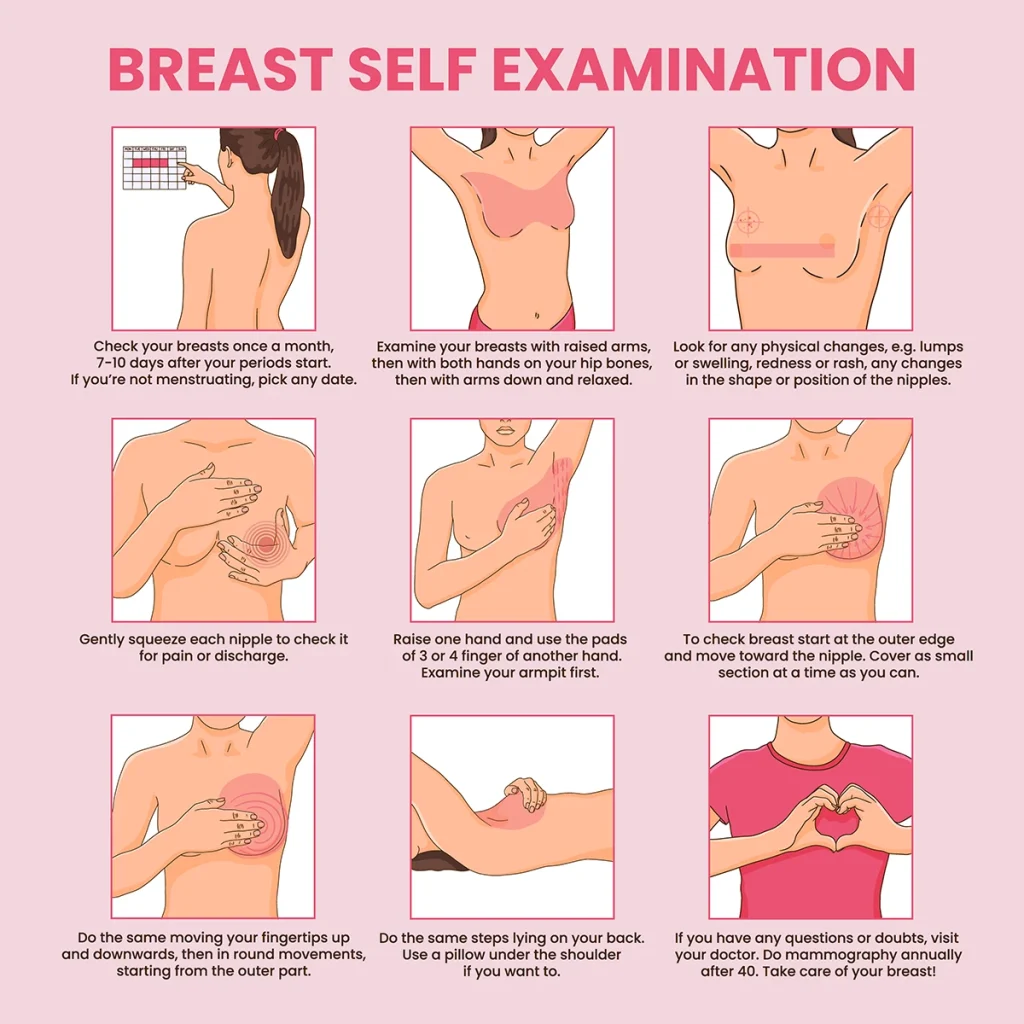Breast Cancer Screening
Breast Cancer: What You Need to Know
Breast Cancer is by far the most frequent cancer among women with an estimated 2.3 million new cancer cases diagnosed in 2020. At the end of 2020, there were 7.8 million women alive who were diagnosed with breast cancer in the past 5 years, making it the world’s most prevalent cancer.
In Mauritius around 1500 new cases for breast cancer & 350 deaths (breast cancer) every year

Objectives of the Cancer Awareness and Educational Programmes
Breast self-examination (BSE) is a simple and painless procedure that women can perform themselves at home. It is an effective early detection method that helps identify changes in breast tissue. BSE should be done monthly, starting from puberty.
Women who regularly perform BSE:
- Become familiar with the normal feel and appearance of their breasts
- Are more likely to detect small changes early
- Detect about 95% of all cancerous lumps themselves
- Should know that 80% of all lumps found through BSE are not cancerous
Studies show that women can often detect smaller lumps than doctors can during a standard exam. While doctors may find lumps 1.5 inches in size, women practicing BSE can detect lumps as small as ¼ to ½ inch—which can mean an earlier diagnosis by 6 to 12 months, greatly improving the chance of a successful outcome.
The best time to perform BSE is just after your menstrual period ends, when the breasts are least sensitive.
Overcoming Barriers to Screening
Some women may delay or avoid breast cancer screenings due to:
- Fear of a diagnosis
- Lack of awareness about screening guidelines
- Difficulty accessing healthcare services
- Anxiety about the procedures
While these concerns are valid, it’s crucial not to let them stand in the way of your health. Early detection can save your life.

Link to Life’s Breast Cancer Screening Services
Link to Life launched free breast cancer screening through clinical breast palpation in October 2009. In 2014, we expanded our services to include ultrasound screening at a minimal cost.
From October 2009 to April 2013, over 3,000 women benefited from our free screening services:
- Screenings are conducted twice a week, by appointment only
- A female doctor performs the screenings
- If any abnormalities are found, the patient is referred to the hospital for further investigation
- Patients also have the freedom to consult a private medical practitioner
During each screening session, women are also taught how to perform breast self-examinations, empowering them with a vital tool for early detection.